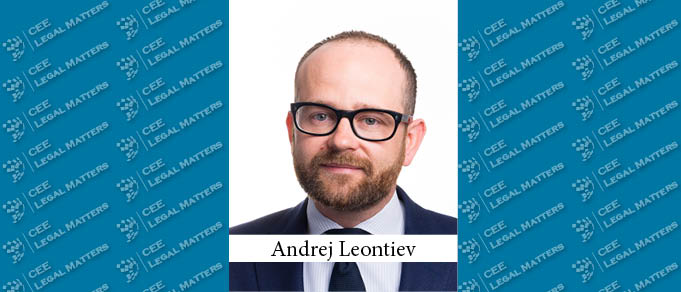“The newly elected Government led by Igor Matovic is constructed of parties who used strong anti-corruption rhetoric in their campaign, so we will be expecting a lot of reform,” says Andrej Leontiev, Partner at Taylor Wessing in Bratislava.
“The Government has promised improvements in the Rule of Law and anti-corruption and major reform of the judiciary, all of which are very welcome,” Leontiev says. The prospect of judicial reform is not a new one in Slovakia, he reports, and was attempted by previous Governments. “In the previous scenario, the Constitutional Court stopped the proposed background inspections of judges. Now, the new Government will try to carry on with the work, while the partially newly elected Constitutional Court will get an opportunity to overturn or amend its previous precedents. This might turn out to have a very interesting resolution to it.”
Leontiev reports that the Government has proposed heavy investment in construction, promising 25,000 new flats (which he describes as “an very optimistic number”) in the next four years. “The proposition is obviously impossible, but the idea itself is great,” he says. “If even a quarter that number actually gets made, that is still good work.”
Another notable proposal involves more transparency and less politics in the selection of the next General Prosecutor, scheduled for summer of this year. “This would be achieved by broadened nomination rights, public hearings, background checks, and multiple other tools that involve the public,” Leontiev says. “Considering that this person is supposed to be the main authority in hunting down criminals, it is reasonable to presume that the public wishes to know who he is and asks for more transparency.”
“The major problem the new Government is facing seems to be the presence of some ideologically conservative members of parliament,” says Leontiev. “This means that it will be rather difficult for the Government to get the homogenous support of its own MPs when it gets to laws regarding certain ethical questions like euthanasia, abortion, and same-sex marriage. In truth, bills aimed at achieving conservative goals must be expected. Of course, the main party will try to avoid these discussions, but it’s the opposition’s job to exploit it, hence we expect bitter discussions in this field as well.”
In general, Leontiev reports that the economy in Slovakia is doing “pretty well,” as the country has, recently, experienced better-than-EU-average GDP growth. However, the recent pandemic outbreak has slowed various industries. “The automotive sector,” he says, “which always worked well in Slovakia, is starting to feel the toughness of the situation on its skin. Manufacturers are being forced to send people home, and even close down factories – especially as most of the goods used in production are imported from China.” According to him, “the Slovakian economy is rather dependent on the automotive sector, and this might lead to a recession.”
Slovakia acted fast on implementing severe quarantine measures and substantially slowed down the spread of the pandemic.“However, the measures had a economic tag on them," reports Leontiev. "A EUR 1 billion per month economic stimulus package was announced recently.” The measures include partial compensation of employment costs for closed businesses, individual employment subsidies for businesses that suffered decline in turnover, provision of state guarantees to banks enabling low interest loans, postponement of payments of tax prepayments and social and health contribution, and allowing the crediting of past losses on recent profits.
“From a mid-term perspective, the Government will have to work on cleaning up the mess in the judiciary and police, especially on trying to break the ties between the politicians and their sponsor and judges and law enforcement units, but at the same time counter the consequences of the crisis," concludes Leontiev, describing it all as "a Herculean job." According to him, "the prosecution for the killing of journalist Jan Kuciak and his fiancé has finally moved forward, as the accused, businessman Marian Kocner, is being put on trial for allegedly ordering the murder. This trial has had the public outraged, and we hope for a happy ending to it. All in all, it is clear that big challenges are ahead of us in the upcoming period."
